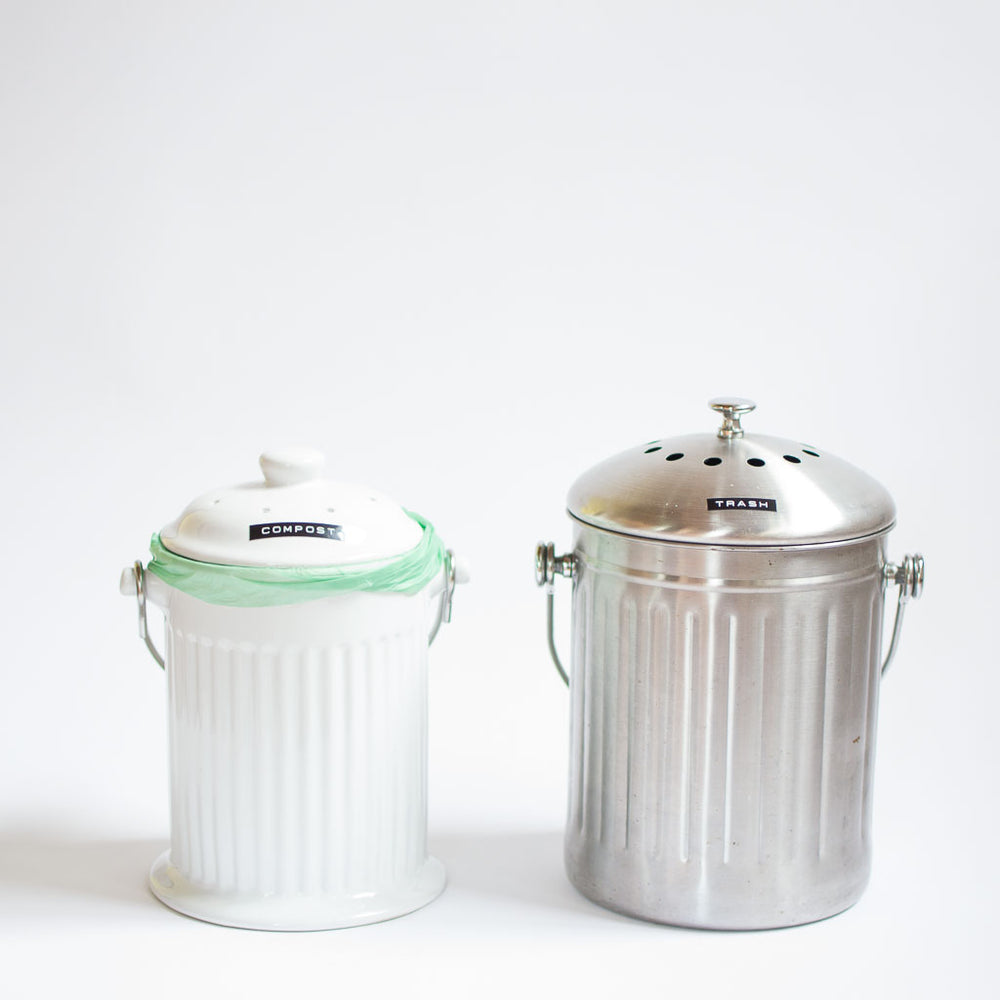The more I transition towards a zero waste, plastic-free lifestyle, the more I forget what it was like getting started. I’ve always had a vague awareness about sustainability—my parents were early adopters of reusable grocery bags and would bring them to the supermarket when I was growing up in the 80s/90s. But beyond that, and starting to compost a few years ago, I was pretty clueless and wasteful.
The turning point was reading an article about Bea Johnson of Zero Waste Home on Earth Day in 2013. Learning about Bea, a chic French woman living waste free in the Bay Area with a husband and two boys was incredibly inspiring. From there, it’s been a process of research, trial and error and mindfulness.
Now that I’m further along down the journey, I commonly get asked how I got started. Many friends have told me that they too would like to reduce waste, but don’t know where to begin and feel intimidated and/or confused about the zero waste lifestyle. In general, I recommend to start small. Even just being mindful about what you’re throwing away is a good way to start. And from there, you can look into alternatives.
Here are my top 5 tips for getting started with zero waste:
- Compost. Get a compost bucket for your kitchen, AND one for your bathroom. There are so many things we encounter everyday that are compostable—paper towels, toilet paper, nail clippings, floor sweepings, dust bunnies, dog hair, human hair, dryer lint, pizza boxes, matches, paper butter wrappers, 100% cotton balls, 100% latex or lambskin condoms, etc. Composting will dramatically cut down your landfill waste and help make you more aware about what you throw away. When in doubt, google it.
- Switch from Disposable to Reusable. Once you're aware of what things you throw away, start looking for reusable alternatives. Switch from paper towels to cloth towels. Instead of plastic wrap and baggies, use reusable beeswax wrap and cloth bowl covers. Switch from tampons and pads to reusable menstrual cups (I also felt squeamish at first about the idea, but now I can’t imagine life without one). For every disposable item out there, you can generally find a reusable, sustainable alternative.
- Pay Attention to Materials. Take a look at what your products are made from and packaged in before you buy them. In general, try to buy items that are made from wood, stainless steel or glass. Instead of a plastic dish sponge, get a wood dish brush that you can compost at the end of life. Instead of plastic dental floss, get silk dental floss (compostable) packaged in a refillable glass container. Swap a plastic toothbrush for a bamboo toothbrush. Added bonus, items made out of wood, glass and metal tend to look prettier in your home than their plastic counterparts!
- Bring Your Own. A big area where we produce plastic waste is grocery shopping. Plastic produce bags, wrappers and packaging are abundant at grocery stores (even at farmers’ markets) and are easy to cut out. Bring your own cloth grocery bags as well as reusable produce bags. Instead of buying packaged goods, try to buy most of your items in bulk with cloth bags. Use glass jars and bottles for fine baking flours and powders, teas, spices, nut butters, olives and oils. Read my post on how to shop with glass jars here.
- Keep a Kit. Keeping a kit on hand for on-the-go is a great way to cut waste when you have a busy schedule and like to eat out. Have a coffee habit? Get a reusable coffee cup and have the barista fill it up. Love drinking from a straw? Get a stainless steel or glass straw that you can reuse again and again. Keep some bamboo cutlery in your purse so you can avoid plastic utensils. Bring a stainless steel lunchbox to take home leftovers.
Have a tip for getting started with zero waste? Please share your ideas in the comment section below.

